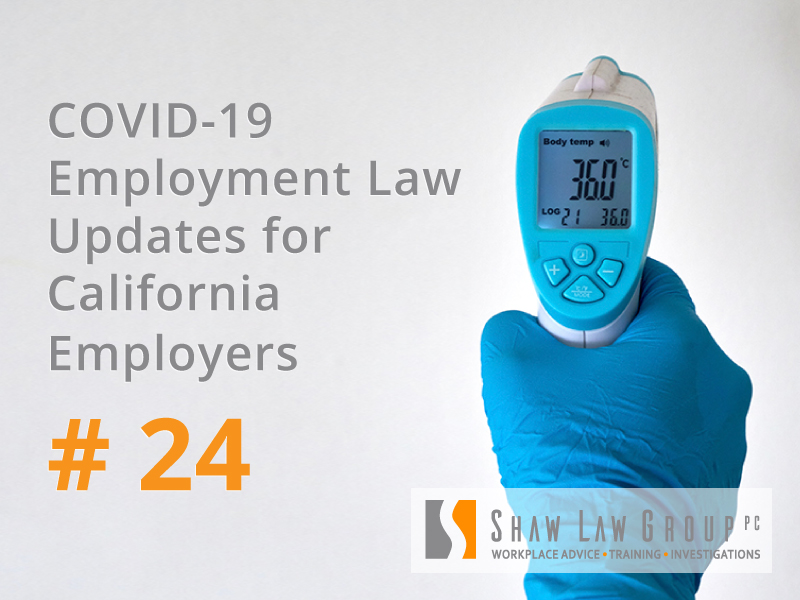Here is part 11 of our guidance for California employers regarding COVID-19-related issues. You can view the other posts on the blog here.
The Equal Employment Opportunity Commission has published a number of notices and other guidance concerning COVID-19 and issues that arise under federal anti-discrimination laws such as the ADA. You can find all the EEOC’s information here.
One of the EEOC’s publications is “What You Should Know About COVID-19 and the ADA, the Rehabilitation Act, and Other EEO Laws,” which you can find here. The agency has revised that document as recently as May 7.
The new guidance covers topics in a Q&A form. Among the subjects covered are:
- Disability-related inquiries and Medical Exams – The EEOC explains whether employers may take employees’ temperatures, refuse to allow employees to work, and require medical certifications from employees who were excluded for COVID-related issues. Note, though, that many of the EEOC’s statements depend on changing information supplied by the Centers for Disease Control and other authorities. Therefore, employers should continue to check with the CDC’s list of symptoms and best practices. CDC information is here.
- Confidentiality of Medical Information. The EEOC confirms that temperature records and other information gathered from employees regarding COVID-19 must be treated confidentially. However, employers may report infected employees to public health officials. California employers must be especially careful to preserve the confidentiality of medical information, given separate protections under state law.
- Hiring and Onboarding. The agency covers whether employers may make inquiries and conduct examinations related to COVID-19. The agency also makes clear that excluding “risky” employees (such as the aged or persons with other risk factors) is illegal.
- Reasonable Accommodation. The agency reminds employers of reasonable accommodation obligations that exist despite the pandemic. However, the EEOC is vague regarding what accommodations are appropriate when employees fear Coronavirus or infection from COVID-19. Employers must be careful not to take the interactive process or reasonable accommodation obligations for granted. At the same time, undue hardship under the current business climate may be a relevant consideration. This is an area that employers should explore with counsel on a case-by-case basis.
- Returning to Work. The EEOC requires employers to make a “direct threat” analysis before excluding employees with a medical condition. That means employers conducting testing of employees and assessing whether they have symptoms of communicable Coronavirus must be careful to rely on expert guidance, such as the CDC and state public health officials.
- The EEOC also covers personal protective gear issues, such as whether employers must make reasonable accommodation for employees unable to wear standard gear issued by employers. (Yes, if possible).



 Trending
Trending